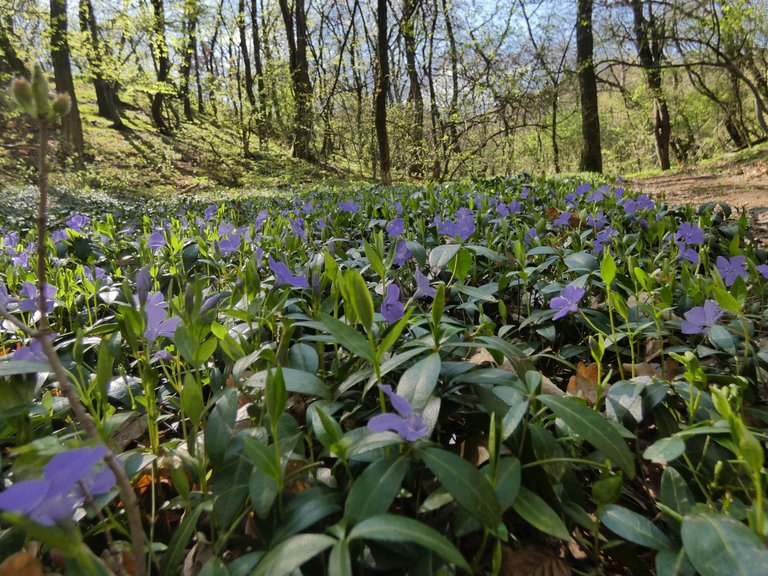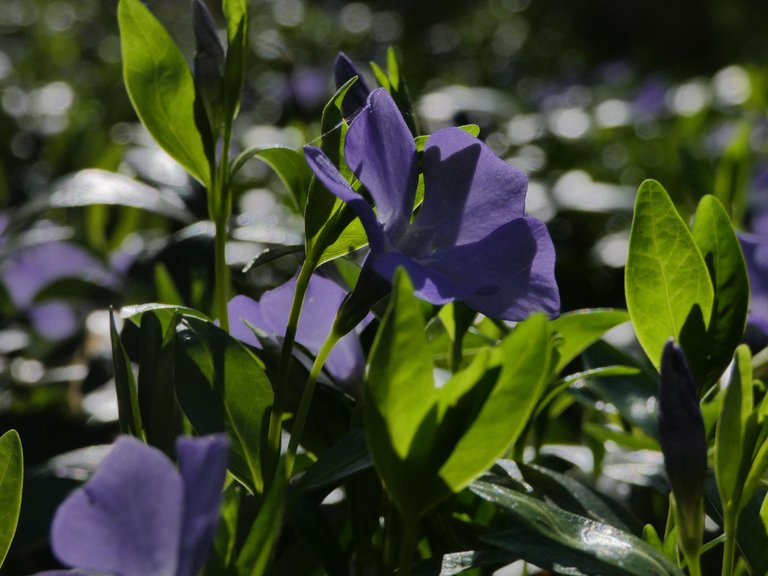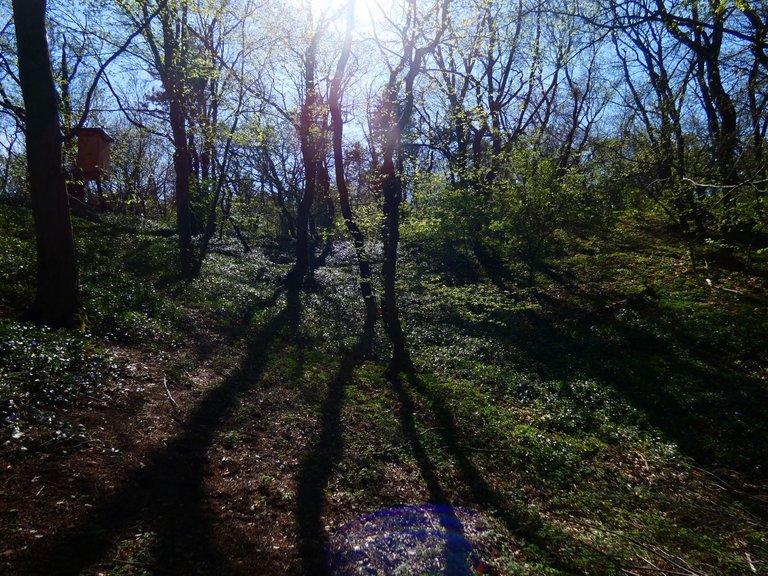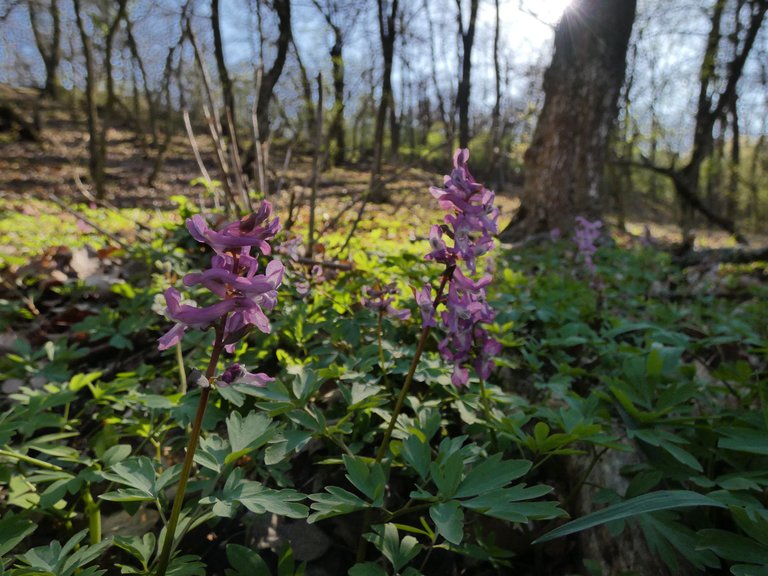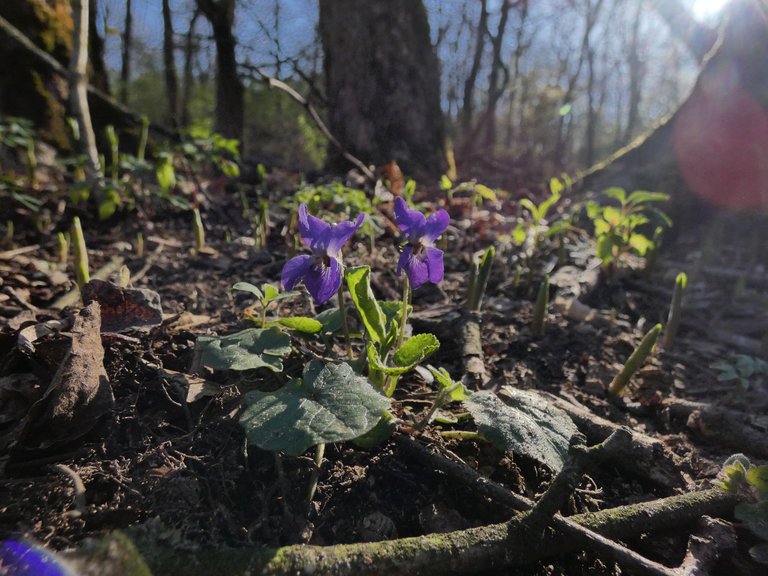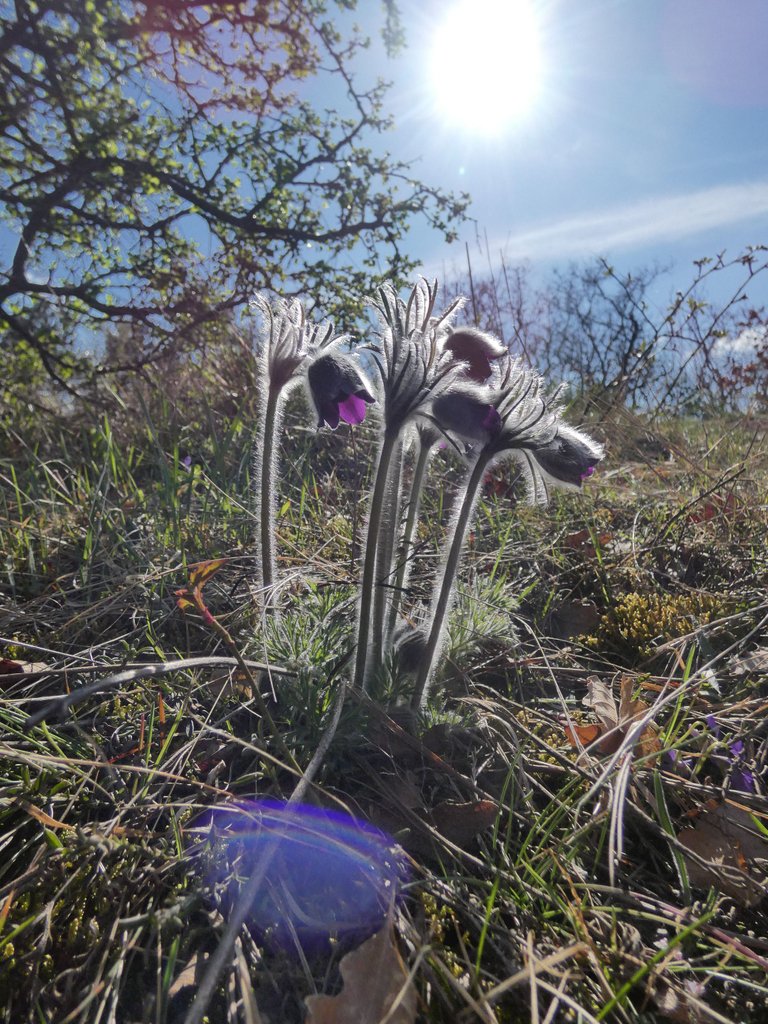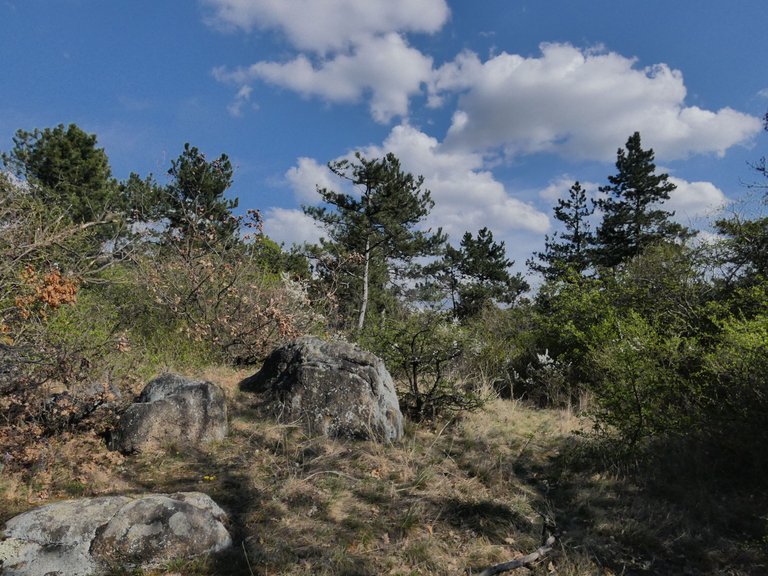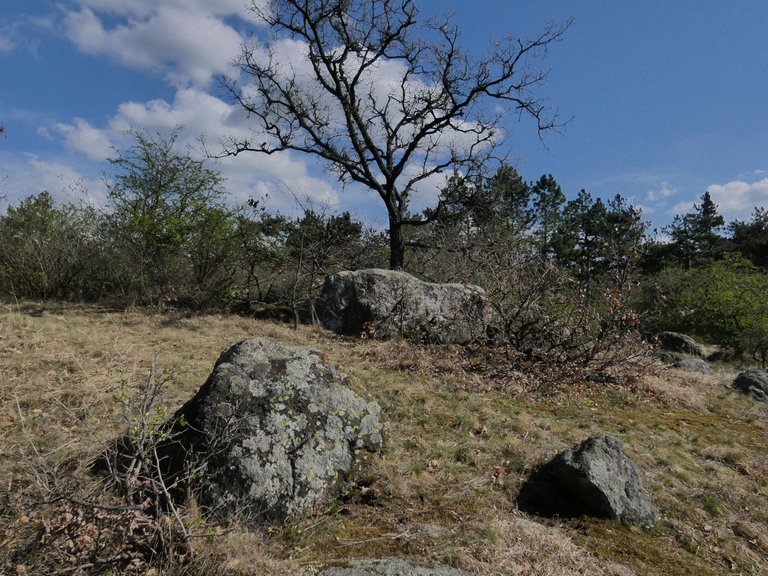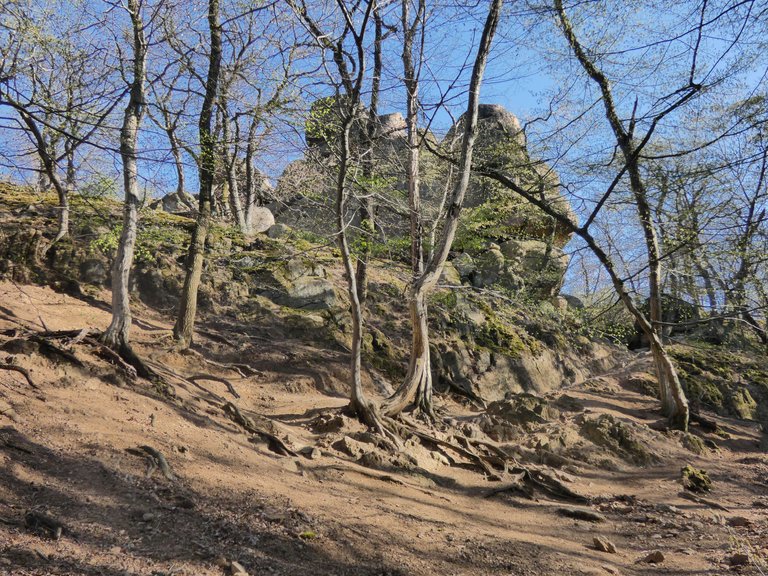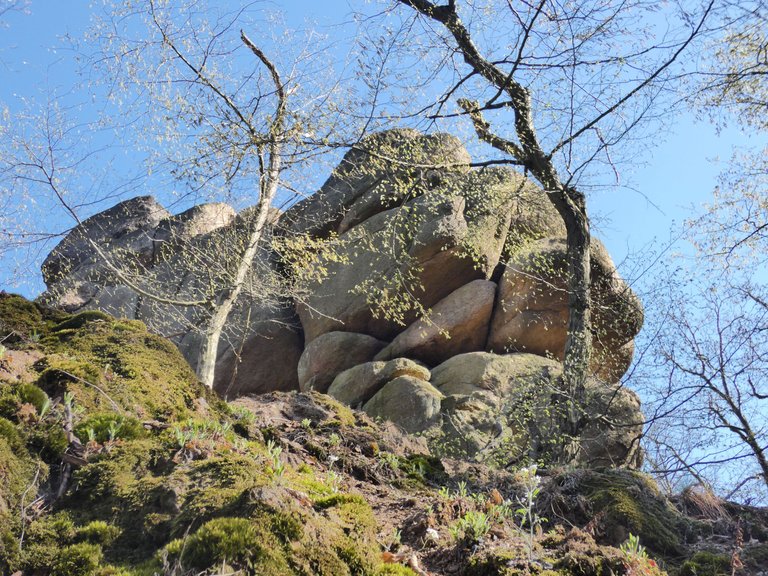The previously bare trees of the forest are slowly greening up. I have observed that this change starts at ground level and spreads upwards. There's a reason for this: nature wisely gives the tiny plants a head start, and they flower before the trees have leaves on them, so they get enough light. They are followed by shrubs, then smaller trees and the lower branches of large trees. The leaves on top of the trees are left to the very end.
The evergreen periwinkle is already in mass flower.
In some places it is so thick that it completely covers the ground.
It is still easy for the sun to penetrate the forest at this time of year, but in a few weeks' time some of the denser parts will be covered in green twilight.
Much to my delight, I found some more black anemones in bloom. They are not actually black, but dark purple.
The tops of the hills are covered with rocks and dense, but still walkable scrub.
Animals move more comfortably and faster than I do in the much denser bush. In some places their well-trodden tracks can be found, which I often mistake for footpaths. Of course, then I realize that they lead nowhere, that is, into the great, prickly thicket.
Rain, wind and hikers' boots were scraping the bottom of the big rocks at the roots of the trees. Fragmented granite grains roll under shoes, making it easy for the ground to slip out from under the feet of the unwary hiker. Uphill it's not so dangerous, but downhill, hiking poles are essential.
When you get under the rocks, you get the feeling that they could fall at any moment. Fortunately this is not the case, they have been stable for millions of years, only the softer rock between them has eroded away.
